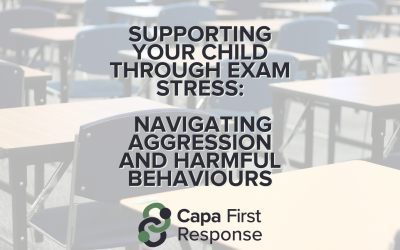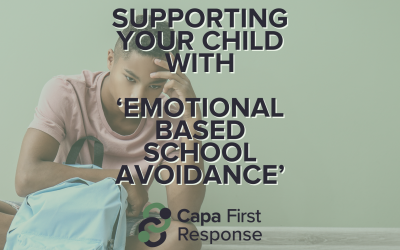If you’re looking to improve communication with your child we want to help, this is what we are all about! Communication in relationships, especially between a parent and a child, plays a crucial role in fostering mutual understanding, trust, and respect. At Capa we acknowledge that one of the hardest things for families living with CAPVA is the breakdown of healthy communication. When you are in conflict with your child and the relationship falters, trying to hold onto healthy communication can be really difficult. Often both parent and child feel unheard, which leads to frustration and potentially to harmful and aggressive behaviours towards family members.
Here are some ideas to consider from a parent/carer perspective when looking to promote healthy communication with your child:
- Active Listening: Actively listening to your child’s thoughts, feelings, and concerns without judgement or interruption. This helps children feel heard, understood, and valued.
- Open and Honest Dialogue: Encourage open communication by creating a safe and non-judgmental space for your child to express their thoughts, opinions, needs, and desires. Parents should also be open and honest in their own communication.
- Empathy and Understanding: Show empathy and try to understand your child’s perspective. Validate their feelings and experiences, even if you don’t agree. This helps strengthen the parent-child bond and build trust.
- Clear and Respectful Communication: Use clear and age-appropriate language to convey messages. Avoid using threatening or demeaning words. Respectful communication establishes a healthy and positive rapport between you and your child.
- Non-Verbal Communication: Pay attention to non-verbal cues such as body language, facial expressions, and tone of voice. These can provide valuable insight into your child’s emotions and can help you respond appropriately.
- Set aside quality time: Set aside dedicated quality time for communication, whether it’s through regular one-on-one chats, or shared activities. This allows for deeper connections and meaningful exchanges.
- Patience and Understanding: Your child may struggle at times to express themselves or may communicate in ways that are challenging to interpret. It’s important to be patient, understanding, and provide support as your child develops their communication skills.
- Problem-solving and Conflict Resolution: Teach your child effective problem-solving and conflict resolution skills. Encourage them to express their concerns, brainstorm solutions, and find compromises when conflicts arise. This not only enhances communication but also equips your child with valuable life skills.
- Role Modelling: Act as a positive role model in your own communication style, demonstrate respect, active listening, and open dialogue. Your child will often learn how to communicate by observing your behaviour.
- Seek Professional Help When Necessary: If communication difficulties persist or become more challenging, it’s essential to seek professional help; Capa offers FREE advice and support sessions for further information contact us at info@capafirstresponse.org
Remember, effective communication is an ongoing process that requires effort from both parents and children. It strengthens the parent-child relationship, fosters trust and understanding, and contributes to a healthy and fulfilling family dynamic.



0 Comments